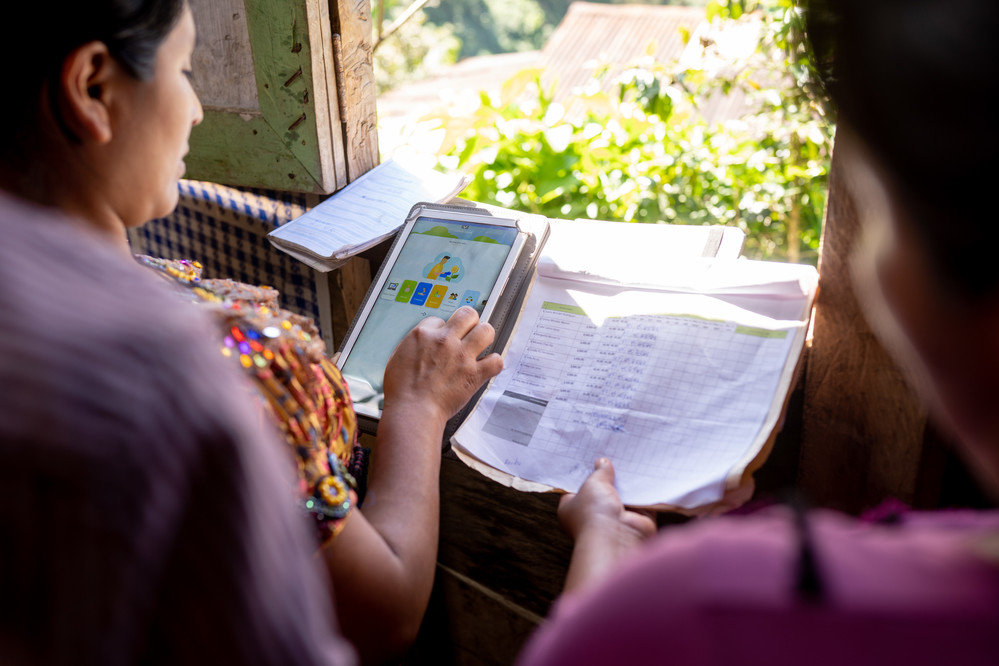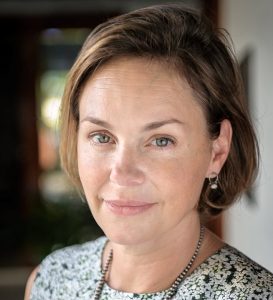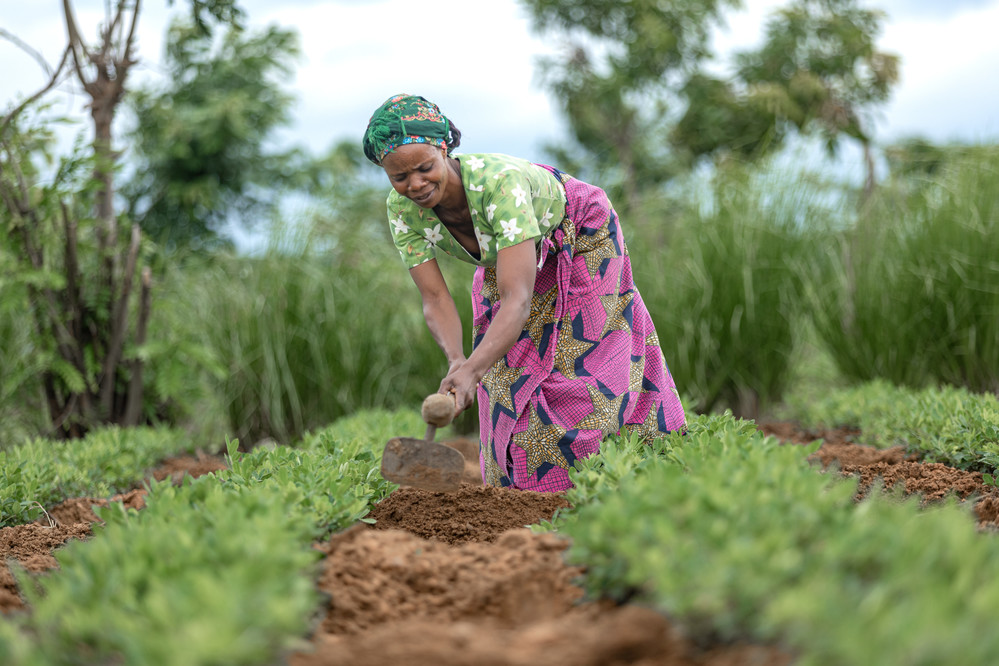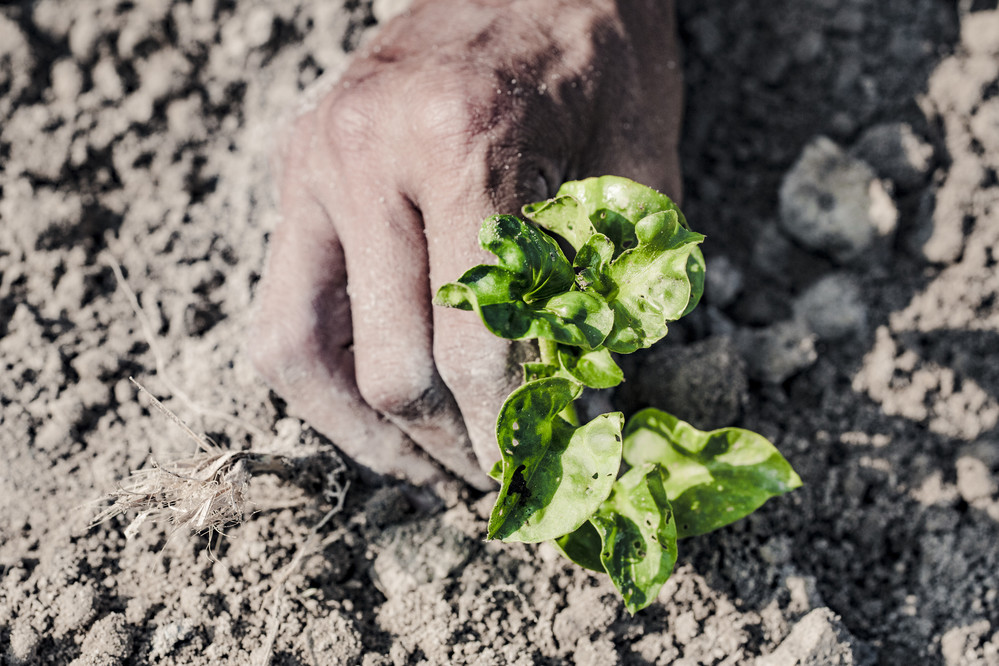Perspectives is a series that highlights emerging issues in the area of agri-SME and smallholder finance from the perspective of practitioners and thought leaders from within and outside the SAFIN Network. In this interview, Leesa Shrader, Former Director of the Mercycorps Agrifin programme, talks about how to drive meaningful adoption and active use of digital solutions for financial services by rural farmers and how to scale the inclusion of women farmers in the ag-tech space.

Photo: IFAD/Santiago Billy
What area of agriculture finance have you specialized in and why?
I specialize mainly in digitally-enabled financial services for smallholder farmers, including digital credit, credit scoring and payments, crop insurance, and savings products with an emphasis on reaching women. I have also done substantial work around merchant-level financial services and agent-banking, which have proven to be the best financial touchpoints for rural enterprises and communities. More recently, I have focused on attracting large-scale investors to different innovators in the ag-tech space. I chose this path because small farmers need access to finance to pay for the products and services that make them productive, so that they can energize the whole agricultural value chain. After working in financial services for many years in analog mode, the power of digital technology to reduce the costs and risks of reaching low-income borrowers was a big revelation.
What are the key challenges related to access to finance for the rural poor and agri-SMEs that digital technology can effectively address? What is missing to really get things going?
Climate change is one big challenge that digital technology can help us address. We have been working for the last 3-4 years on technology that uses satellite sensor data to help us understand the changing climatic conditions during planting seasons or to track the greening of crops to detect pests and diseases. Geotagging allows lenders to monitor very small farms to assess the level of climate risk or whether planting has taken place or not, enabling them to intervene promptly.
Digital technology also provides a lot of data variables for credit scoring, and this could be a game-changer. Governments, academic institutions, scientific institutions and credit bureaux already have a lot of data related to smallholder farmers that can inform plans to improve their access to finance. Technology has also rapidly reduced the costs of communicating with borrowers and allowed financial service providers to bundle in additional services like agricultural advisory services or crop insurance that can help reduce risk and increase loyalty.
There is a lot of great ag-tech already available, but an effective bridge to financial institutions is still blocked by regulatory challenges. For example, if regulators don’t recognize alternative data streams for agriculture such as soil quality data, then commercial banks cannot use it for more advanced credit scoring. Gender norms are also a key challenge in the uptake of these financial services among women. Women, particularly those in rural areas, may not redeem credit or inputs for which they have been approved due to limited control of household finances, limited mobility or lack of spousal approval.
What are the key challenges that digital solutions cannot effectively address? What do you see as the key challenges related to the increased adoption of tech solutions?
Digital solutions are not built to address challenges related to infrastructure, logistics and transport. While some operations can be taken fully online, like e-learning platforms that farmers can access through their phones, some complex challenges like market aggregation or access to inputs still require trucks on the road. Even with solutions that can be used online, in communities where trust in digital solutions is still low an assisted model with a human field force may still be required to build digital literacy and trust. The assisted model has proven particularly useful in driving meaningful adoption, active use and inclusion of women in some digital solutions.
We are still far from mass adoption of tech solutions, and this is also blocked by low rates of mobile phone ownership, poor network coverage and unsuitable user experiences for rural farmers. Tech innovators need to understand the ecosystem around farmers at the last mile, who often don’t have access to internet connections, are brand sensitive and prefer simple, intuitive solutions, in order to build a great customer journey for them.
What excites you about the future of technology for agricultural finance?
I’m really excited about embedded finance models that digitally-enabled supply chain players like eprod and Virtual City use to streamline accountability and access to finance at each stage of the agricultural value chain. These models incorporate logistics, transport, cold storage and many other activities, making them well suited to reduce post-harvest loss. I am also happy to see new models for data sharing where governments are taking on a new role to share and validate agricultural data. One example is our recent work with the Government of Kenya and KALRO on a big data hub through which the Government avails its data publicly and offers free smart farming solutions to entities that share data back. Such approaches can drive private sector growth while informing government policy with reliable data for faster responses to the climate shocks that affect agriculture.
Breakthrough business models designed for women also excite me. For example, the Chomoka solution in Tanzania digitizes the operations of women’s savings groups and links them to financial service providers. Recent experience and research by ACRE Africa have also proven that women smallholder farmers can be acquired at a lower cost than men farmers. Ultimately, we cannot scale the reach of digital solutions and financial services to women without more business models designed specifically for them. We have finally started to see more cases of these profitable business models taking hold.
—————
Leesa Shrader, Former Director, Mercycorps Agrifin programme

Leesa is the former Director of the Mercy Corps AgriFin programs through end 2021, which represent over $50 million of innovation funding from the Bill and Melinda Gates Foundation, Bayer Foundation, Walmart Foundation and other funders aiming to harness the power of digital innovation for smallholder farmers to build farmer incomes, productivity and resilience around the world. She is currently consulting with over 30 years’ global experience working in financial inclusion, agriculture and technology for development with leading banks, mobile network operators and development institutions such as the World Bank, GIZ and Women’s World Banking in 20 countries across Africa, the Middle East, Latin America and Asia.

